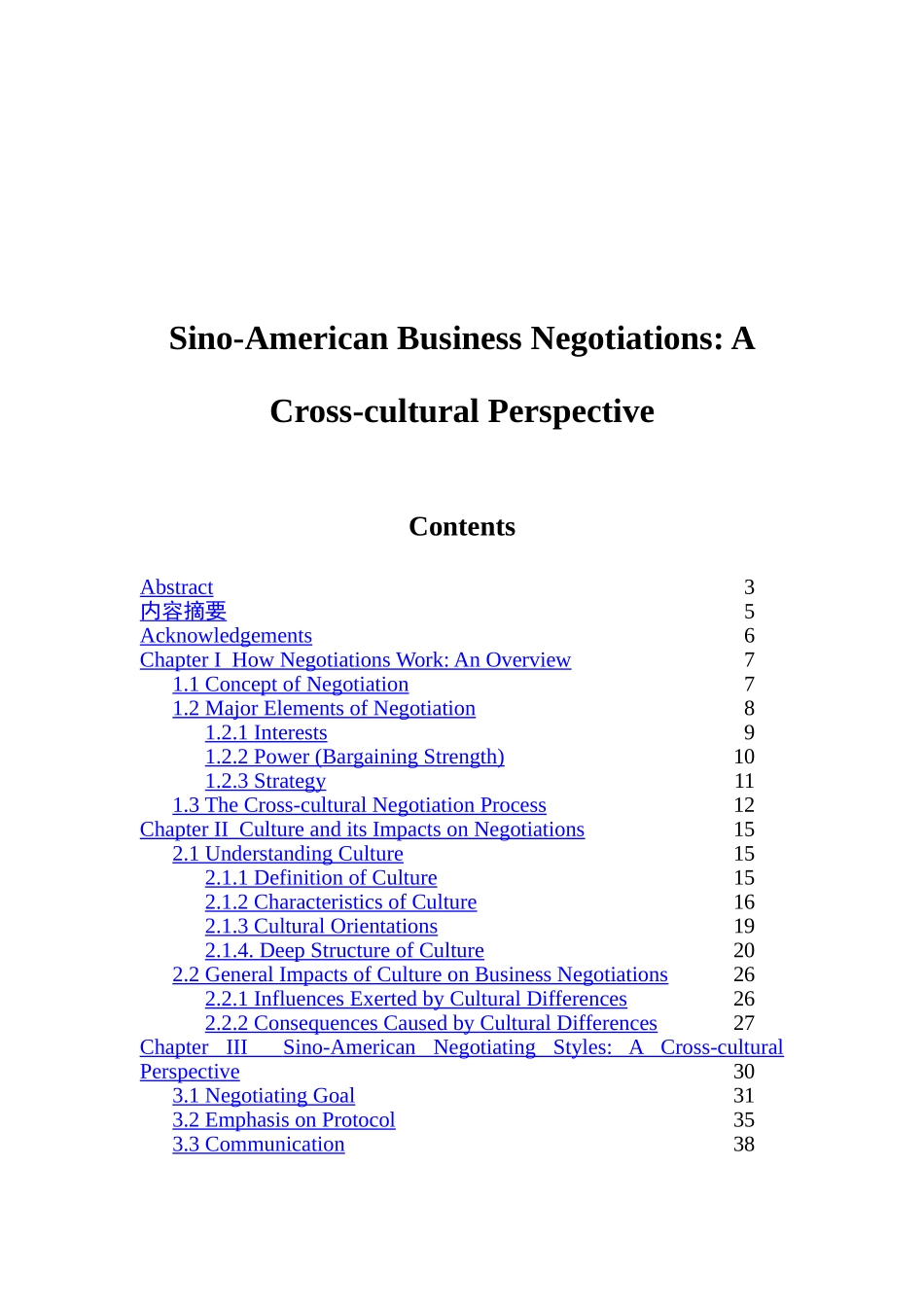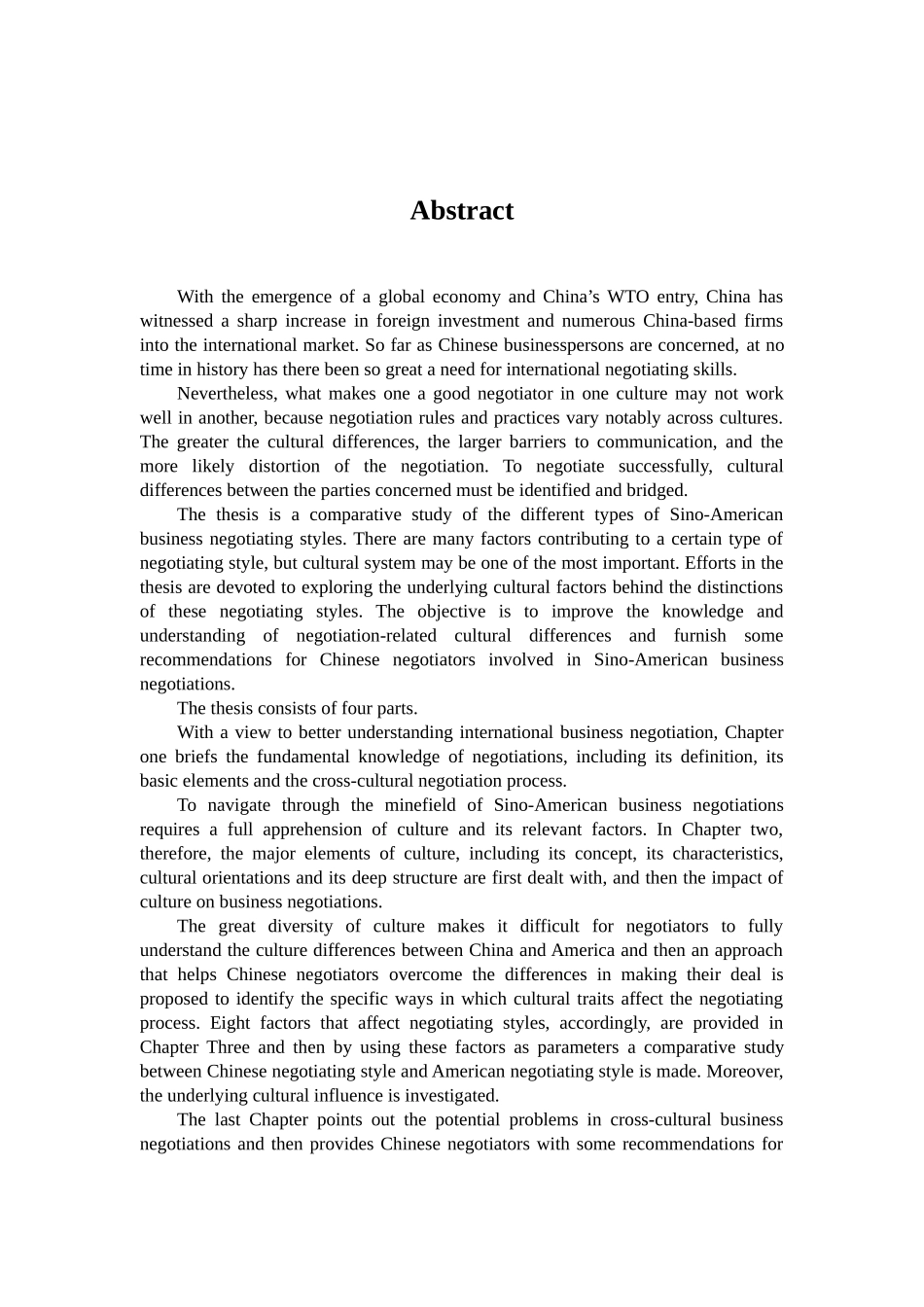Sino-American Business Negotiations: A Cross-cultural Perspective Contents Abstract3内容摘要5Acknowledgements6Chapter I How Negotiations Work: An Overview71.1 Concept of Negotiation71.2 Major Elements of Negotiation81.2.1 Interests91.2.2 Power (Bargaining Strength)101.2.3 Strategy111.3 The Cross-cultural Negotiation Process12Chapter II Culture and its Impacts on Negotiations152.1 Understanding Culture152.1.1 Definition of Culture152.1.2 Characteristics of Culture162.1.3 Cultural Orientations192.1.4. Deep Structure of Culture202.2 General Impacts of Culture on Business Negotiations262.2.1 Influences Exerted by Cultural Differences262.2.2 Consequences Caused by Cultural Differences27Chapter III Sino-American Negotiating Styles: A Cross-cultural Perspective303.1 Negotiating Goal313.2 Emphasis on Protocol353.3 Communication383.4 Sensitivity to Time403.5 Emotionalism433.6 Form of Agreement453.7 Decision-making493.8 Willingness to Take Risks51Chapter IV Conclusion and Recommendations for Chinese Negotiators554.1 Potential Problems in Intercultural Business Negotiations554.1.1 Stereotypes564.1.2 Ethnocentrism574.1.3 Prejudice584.2 Recommendations for Chinese Negotiators584.2.1 Cultivating Cultural Awareness and Sensitivity584.2.2 Making sufficient preparations604.2.3 Having a Good Command of the Target Language604.2.4 Laying Great Emphasis on Non-verbal Communications61Bibliography:63 Abstract With the emergence of a global economy and China’s WTO entry, China has witnessed a sharp increase in foreign investment and numerous China-based firms into the international market. So far as Chinese businesspersons are concerned, at no time in history has there been so great a need for international negotiating skills. Nevertheless, what makes one a good negotiator in one culture may...


